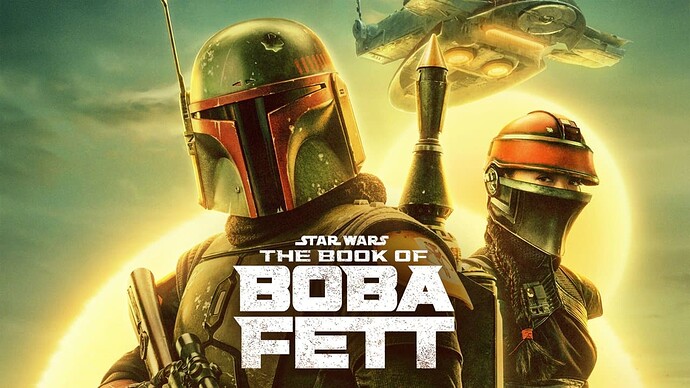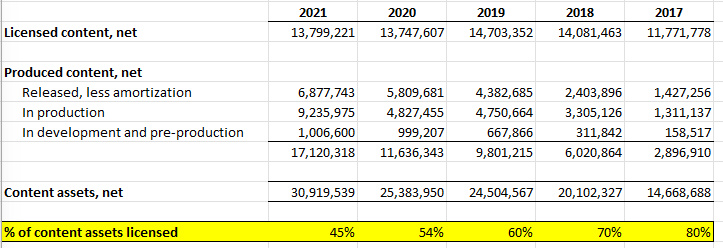How do you fuck up running a company that owns Marvel and Star Wars? That’s like a license to print money for the next 20 years or so.
In other business genius news.
Wrong thread.
But all the BIG DATA!
Wrong thread.
He was really fucking bad at his job.
The everything is going to zero line is pure stupidity.
Disney lost $4 billion on streaming LAST QUARTER.
The only profitable division right now is Parks & Entertainment, which they are, of course, running into the ground.
Is that like the difference between revenue for Disney+ subscriptions less the cost to make the shows?
Netflix had a big first-mover advantage in streaming and even they decided to cut the budget for producing prestige shows and decided to fill the site with lower quality junk food TV. Is Disney running into the same problem?
Yes, Disney has spent an absolute fortune on the Marvel & Star Wars streaming shows.
disney will be fine lol. probably a fantastic price to scoop up a lot of it. I felt the streaming move was wise - disney+ and hulu could be primed to be the main entertainment options, but in my opinion it’s like 5 years away not 1-2 like this guy was saying. i use hulu plus all the addons, it’s so much better than cable and dealing with these scumbag telecom companies it’s not even funny.
Its crazy because they could probably have a popular and wildly profitable service to just stream old Disney content for like 5 bucks a month.
The difference is that fans will still watch whatever D-grade shows Marvel and Star Wars make, whereas they’ll just stop watching Netflix if it makes bad TV shows.
They did have that. That’s what D+ was when it first launched. $6 a month and all their old content. And it was wildly popular, especially for families (like mine) that have young kids.
It’s really astonishing how much money Disney is losing on this. They could have:
A) Continued to spend $0 incremental on infrastructure and streaming-specific content and raked in hundreds of millions of revenues from licensing their content to Netflix et al.
B) Created basic infrastructure and charge a modest amount per month to access old content.
C) Spent a ton on advertising and billions on streaming-specific content in order to get a (presumably) larger audience at a slightly higher monthly cost.
They chose C and it seems like a disaster. I feel like both consumers and media companies would prefer to go back to the original Netflix model, where consumers get a single hub for all of their content, Netflix makes a bunch of money, and the other media companies get sizable amounts of 100% margin revenues in licensing. But now we’re stuck in this weird equilibrium where consumers aren’t happy, media companies are losing money, and no one is reversing course.
Yeah, that was all Chapek. He tried to kill the King (Netflix) instead of being satisfied with what Iger started off with (basically option B). I doubt most people are going to pay to have 6 different streaming services all at the same time.
Also, LOL:
What the fuck are they even thinking? They need to gross 2 billion on a sequel to a 15 year old movie. I mean, maybe? But probably not.
What’s interesting to me is the effect on Netflix from all of these companies developing their own streaming services. Regardless of whether or not it’s a smart decision for those other companies, Netflix is bearing a double-edged cost:
- They’re now competing with those streaming services for consumers’ monthly spending.
- They no longer have access to the premium content owned by those other companies. Rather than just being the best conduit for the best conduit, they’ve now got to be the producer of good content.
You can see this in their financial statements:
Their total spent on licensed content has been fairly stable over the last several years, but their spending on produced content has exploded - the net produced content asset has grown from $2.9 billion to $17.1 billion in the last 5 years. Their licensed content (i.e., the higher quality stuff that consumers actually want to watch) has declined from 80% of their total content to only 45% of total content.
And what makes things worse is I don’t think they’ve created a ton of long-lasting value that (in contrast to Marvel or Star Wars content) people will be willing to pay for 5-10 years from now. Like, do you imagine anyone saying “Oh man, I can’t wait to relive my favorite childhood show, The Queen’s Gambit.” I think the only arguably close thing is Stranger Things, but I wouldn’t be optimistic about that either.
So I am super bearish on Netflix going forward, as they continue to struggle with producing their own high-quality content at reasonable costs. I think the most optimistic view of Netflix’s future is the possibility that other streaming services realize that this segmented approach is actually bad for everyone, and they return to the 2018 or so status quo.


